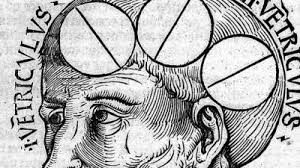Sometimes I get impatient with the phrase “unconscious bias.” The word “unconscious” leaves the impression that these biases – these inflexible beliefs about particular categories of people – are completely beyond our reach. In turn, because they are (supposedly) beyond our reach, the implication is that there’s nothing we can do about them.
In fact, many of our unconscious biases do make themselves known to our conscious mind from time to time. For one thing, they can spontaneously appear in the form of a thought – a thought that, if we are alert enough, we can grab on to and do something about.
Biases also can reveal themselves – or at least reveal clues to their existence – in our decisions and our behaviors. It’s those actions, those decisions that I’m concerned with here. Think of what I’m proposing as a sort of personal bias audit. The idea is to examine your behaviors to see if maybe, just maybe, they might be influenced by a bias that is lurking beneath your awareness. This bias audit consists of three steps.
Step 1: Construct a list of the behaviors that might be influenced by unconscious attitudes toward other groups. Here are some examples:
- What do you include in your social network?
- Whom do you tend to promote or hire?
- Whom do you sit next to in the cafeteria or stop to speak with in the hall?
- Whose phone calls or e-mails do you return first?
- What factors influence which resumes you follow up on?
Step 2: Examine each item to see if any particular groups tend to be over or under represented. Is there a critical mass, for example, of people who look like you in the list of those whom you most often promote? Do you socialize with those from your own group despite the fact that you work and live in a diverse community?
Step 3: Think about what that imbalance could mean about how your unconscious might be influencing your thinking. Is there a bias reaching up and causing you to be friendly to one person over another, to consider for promotion men over women or women over men?
Some Words of Comfort: No matter what you discover, having a bias does not make you a bad person and does not necessarily mean you are racist, sexist, or homophobic. All it means is that you, like the rest of us, are influenced by past messages and past experiences. What matters is not so much if the bias is there but instead what we do about it.
Sondra Thiederman can be contacted for virtual presentations and panel participation by e-mailing her here or calling 619-992-3766. For additional information, go to the Meet Sondra page on this site.
© copyright 2017 Sondra Thiederman, Ph.D.
Feel free to reprint or re-post as long as copyright and website information (www.thiederman.com) are attached.

